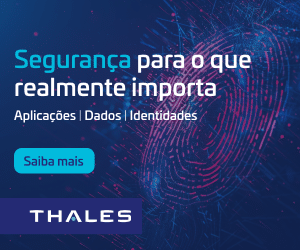
CryptoID publica artigos em outros idiomas na coluna International News.
By Ayrton Bernardes Carvalho Filho*
The dream of creating notary services combined with digital certification technology had been born long before the enactment of the Provisional Executive Act 2,200-2 on August 24th 2001.
This Act established the Brazilian Public Key Infrastructure (ICP-Brazil) and gave digitally signed public and private documents in electronic form the same validity as statements signed with one’s own hand, as supported by section 131 of the old 1916 Brazilian Civil Code and now by section 219 of Federal Law 10,406 dated January 10th 2012.
When section 236 of the current Federal Constitution was regulated in 1994 by Federal Law 8,935, a seed was planted in section 41, which allowed Brazilian notaries and registrars to practice all such acts provided for by the law as may be required for the organization and performance of their services, including the adoption of computer systems. Hence a dream was born.
There were decades of studies, beginning in 1983 in the Civil Engineering and Law schools of the Catholic University of Rio Grande do Sul, until June 2016, when an Internet surfer with an ICP-Brazil digital certificate requested a “digital notarization of signatures” (who knows from where) and got prompt service entirely on-line in the Signature Portal of the 1st Notary Office of Porto Alegre, the first Digital Notary Office in Brazil. Then a dream was fulfilled.
All the intellectual work performed in the construction of this new technological tool, which also allows for the writing of deeds, powers of attorney, minutes and wills in electronic form, was based on foreign and domestic laws and, on a subsidiary basis, technical rules established by the Disciplinary Board of the Justice of the State of Rio Grande do Sul, Normative Instruction of the National Information Technology Institute, Resolutions and documents of ICP-Brazil.
But none of this would have been possible without the support and encouragement I received from a true Notary Public, Ayrton Bernardes Carvalho, my father, who became a Notary Public through a competitive examination, a wise and righteous man who still works 10 hours a day and is currently 76 years old, having devoted 62 years of his life to Justice and notary activities. He taught me my first steps and to become a Law-abiding citizen like him.
The Digital Notary Office is not only one of my new inventions, just like the holographic self-adhesive seal the patent of which was deposited in the 1990’s with the National Industrial Property Institute and is used in lieu of rubber stamps in the notarization of signatures and certification of copies by millions of notaries in Brazil.
The Digital Notary Office is a new concept for providing notary services entirely on line in a quick, efficient, legal, authentic and correct manner, including non-repudiation and environmental sustainability.
For technology lovers, the Digital Notary Office is a new workflow tool which enables (a) uploading electronic documents, (b) managing digital signatures and (c) giving full faith and credit to documents by means of a digital certificate and time stamp issued by a Certifying Authority accredited by ICP-Brazil.
On the Internet and among computer scientists, this kind of tool is named: Signature Portal with Notary Intervention.
This new invention and the entire “body of work” also includes the Digital Stamps for Notary Inspection and Registration issued by the Court of Justice of Rio Grande do Sul, which are used in all electronic notary acts issued by the 1st Notary Office of Porto Alegre and will be adopted by the more than 500 notary offices in the state of Rio Grande do Sul in the near future.
The Digital Notary Office software is available for all notary and registration services performed in Brazil and all over the world, but is not intended to replace the existing “notary management” programs. Instead, it is a tool to be customized and integrated into various computer systems and technological platforms.
The mobile version to be used in smart phones is still being tested. In the next decade, any person requesting an electronic notary act who owns a digital certificate will no longer be required to appear in a notary office in person. He or she may connect to a Notary Public to be visually identified in the form of a three-dimensional hologram and digitally sign an electronic document with technological and legal safety.
The Notary Public will no longer need to enter a “video conference room” to be able to look a grantor of an electronic power of attorney in the eye and hear his or her own voice as it currently happens with the Digital Notary Office software, which is in its second version.
In this year, 2016 years after the birth of our Lord Jesus Christ, I will attend the 29th International Congress of Notaries, which will be held in the Paris Convention Center in Paris, France, on October 19-22, to observe and hear wise notaries from all over the world and bring innovations and improvements to Brazil to be used in the third version of the Brazilian program.
And finally, in the year 2020, when maybe I am no longer a Notary Public, I hope to be on the other side of the Atlantic, in Portugal, with my family and my old father, my greatest and eternal hero, to fulfill one more dream: teach History where my grandfather Joaquim Vieira de Carvalho, an honorable baker, was born. And from there, God willing, I will see Brazilian notaries united for the common purpose of maintaining and preserving the Notary Activities.
Ayrton Bernardes Carvalho Filho | Inventor and Brazilian Substitute Notary in the 1st Notary Office of Porto Alegre – RS
[ot-video][/ot-video]
Leia outros artigos em International News.
































